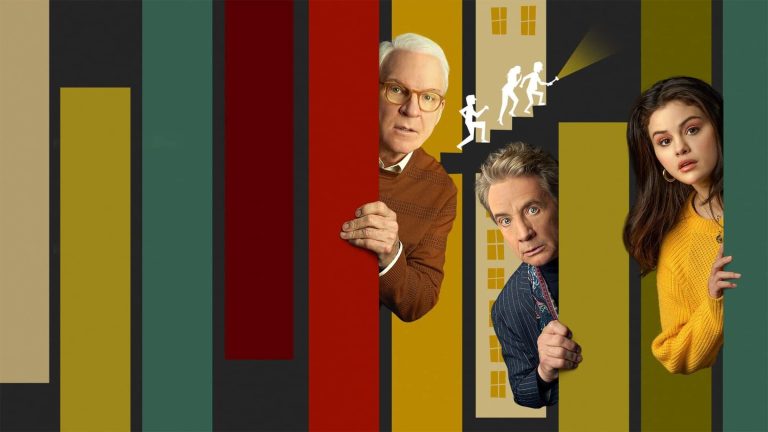
Words of wisdom, inspiration, and motivation can come from all walks of life. Here we turn to iconic coaches and players from the National Football League for some wise, inspiring, and motivating quotes that screenwriters can apply to their own journeys. We'll elaborate on each quote and put them into the context of the art, craft, and business of screenwriting.
So sit back in your game day chair with some snacks while wearing your favorite NFL jersey and learn from some of the NFL's greatest.
1. “Perfection is not attainable. But if we chase perfection, we can catch excellence.” — Vince Lombardi, Head Coach, Green Bay Packers (1959-67), Washington Redskins (1969)

There is no such thing as a perfect script. Not every line of dialogue, every character arc, every story point, and every twist or turn is going to hit the mark for everyone that reads your story. The point is to chase perfection in order to create the best possible screenplay that you can conjure. Everything else will fall into place.
2. "Excuses are the tools of the incompetent." — Mike Tomlin, Head Coach, Pittsburgh Steelers (2007-Present)
Writer's block is a myth — it doesn't exist. It is not some evil black vapor that seeps into your mind, hindering you from writing. It is a collection of excuses that you either create or succumb to.
Read ScreenCraft's 7 Reasons Why “Writer’s Block” is BS!
And beyond that, Hollywood isn't to blame for your lack of success. Sure, there are hurdles to overcome, but if you apply yourself and do the work you'll increase your odds of success tenfold.
When you sit back and blame others or make excuses, you'll be going nowhere fast.
3. “If you want to win, do the ordinary things better than anyone else does them day in and day out.” — Chuck Noll, Head Coach, Pittsburgh Steelers (1969-91)

The basics of screenwriting are easy to master, but for some reason many screenwriters struggle to tell a compelling cinematic story within the screenplay format. Every great script has three basic elements — compelling characters, engaging concepts, and conflict-riddled stories that keep the reader and eventual audience wanting more.
Write compelling characters better than anyone else. Conjure engaging concepts better than anyone else. Create conflict that you throw at your characters, causing amazing twists and turns, better than anyone else.
You accomplish that by avoiding the trap of going through the motions and telling the same stories people already know. Take those familiar elements and do them better.
4. “Try not to do too many things at once. Know what you want, the number one thing today and tomorrow. Persevere and get it done.” — George Allen, Head Coach, Los Angeles Rams (1957, 1966-70), Chicago Bears (1958-65), Washington Redskins (1971-77)
So many screenwriters juggle multiple projects at the same time. Unless that is a result of being a successful screenwriter with multiple assignments, how can you possibly put the necessary focus on each and every script as a newcomer?
Stop bouncing back and forth between screenplays and persevere to get each and every one of them done — and done right.
5. “You fail all the time, but you aren’t a failure until you start blaming someone else.” — Bum Phillips, Head Coach, Houston Oilers (1975-80), New Orleans Saints (1981-85)
Screenwriters can fall into that trap of blaming their failure on Hollywood, the system, the contests, the fellowships, the producers, the managers, the agents, and whoever else is there to deflect frustrations onto.
Failure is part of the screenwriting journey. You will fail far more than you will ever succeed. Every seven-figure earning and Oscar-winning screenwriter has failed more than they have ever succeeded.
Learn from the failures. Learn from the rejections. Failure is your greatest tool that you can use to become the best writer you need to be.
6. “You can't always control circumstances. However, you can always control your attitude, approach, and response. Your options are to complain or to look ahead and figure out how to make the situation better.” — Tony Dungy, Head coach, Tampa Bay Buccaneers (1996-2001), Indianapolis Colts (2002-08)

Hollywood isn't fair. The system is set up to filter out as many writers and screenplays as possible because the film industry is oversaturated with those trying to break through the walls. We can feel sorry for ourselves and mope, or we can handle the adversity by going in with a positive and hopeful attitude, a strong and confident approach, and handle each and every triumph and tribulation with poise — eyes always on the prize.
7. “Stay focused. Your start does not determine how you’re going to finish.” — Herm Edwards, Head Coach, New York Jets (2001-05), Kansas City Chiefs (2006-08)
That first screenplay will always be your worst. That first draft will always be lacking. Your first year pursuing this screenwriting dream will always be ripe with failure, rejection, and self doubt. Stay focused with eyes ahead and remember that how you start will not determine how you finish.
You'll learn. You'll grow. Your writing will evolve.
8. “Nobody who ever gave his best regretted it.” — George S. Halas, Head Coach, Chicago Bears (1933-42, 1946-55, 1958-67)
The hard truth is that not everyone who tries to be a screenwriter will make it. Few do in the end. This business is comprised of the top 1% of those who attempt it. And the top 1% of that 1% are the ones making an amazing living doing what they love — while the rest do their best to get that next assignment.
But that doesn't mean it's not going to happen for you. Every one of those top 1% were just like you at one time, struggling to turn a dream into a reality.
Regardless, just give it everything you have. Get all of those scripts you've had in your head out, and in the best possible manner. Market those scripts as much as you can and get those scripts into the hands of the decision-makers. Everything else beyond that is out of your hands.
If you make it, wonderful. Don't forget us little people. If you don't, at least you'll rest easy with no regrets. You'll never have to ask yourself, "I wonder what would have happened if I tried to realize my dream of writing movies?"
9. “Success isn’t measured by money or power or social rank. Success is measured by your discipline and inner peace.”— Mike Ditka, Head Coach, Chicago Bears (1982-92), New Orleans Saints (1997-99)

No amount of money in the world, no big studio assignment, and no golden statue is as much of a success as inner peace. If you work hard and love what you do, you're already more successful than most. Hollywood already has plenty of ego — driven by money, power, and social rank.
Change the system by being a humble success story.
10. "Remember, tomorrow is promised to no one." — Walter Payton, Hall of Fame Running Back, Chicago Bears (1975–1987)

Keep writing. Don't ever stop. One script isn't enough. Keep up the work and get those stories that are swimming in your head out. Now is the time to pursue this dream. Not tomorrow. Not next week. Not next year. It doesn't matter if you're stuck in another job, another industry, or another way of life — now is the time to start chasing this dream. And now is the time to do so with full force, as if tomorrow is nothing more than icing on the cake. Find a way to make it happen.
11. “Self-praise is for losers. Be a winner. Stand for something. Always have class, and be humble.” — John Madden, Head Coach, Oakland Raiders (1969-78)
Praising yourself — whether warranted or not — is not confidence. That's not a winning attitude. If you've placed high or won a contest, remain humble. If you've secured representation, remain humble. If you're getting meetings at studios, all of which are interested in your scripts, remain humble. If you sell that script or get that assignment, remain humble.
Use your own success to help others. Share what you've learned. Stand up for those that are where you were not long ago.
12. “If you sit back and spend too much time feeling good about what you did in the past, you’re going to come up short next time.” — Bill Belichick, Head Coach, New England Patriots (2000–present)
A common misconception is that once you win that big contest, the offers will pour in. Or when you get representation, a script sale will soon follow. Or when you get that first option, sale, or assignment, the project will be produced. Or when that first project is produced, more options, sales, and assignments will soon follow.
When you manage to succeed in any of those ways, by all means, celebrate. But if you put all of your hopes and dreams into that one success, you'll come up short. You'll lose focus and forget to move forward with other projects. Always be looking forward to the next.
13. “I’ve observed that if individuals who prevail in a highly competitive environment have any one thing in common besides success, it is failure—and their ability to overcome it.” — Bill Walsh, Head Coach, San Francisco 49ers (1979-88)

Every successful screenwriter has failed time and time again. Those that have succeeded have one thing in common — the ability to use that failure to better themselves and their writing, and the ability to thus overcome any and all failure that comes their way.
14. “The difference between ordinary and extraordinary is that little extra.” — Jimmy Johnson, Head Coach, Dallas Cowboys (1989-93), Miami Dolphins (1996-99)
The success stories you read in the trades about screenwriters winning contests, selling scripts, and getting hired for major assignments can both give you hope and make you feel hopeless at the same time as you watch others succeed. But take comfort in knowing that the difference between you and them is so small. It's that one little moment of luck. That one little moment of extra effort. That's all it takes to get your own name featured in those success stories.
15. “If you ain’t pissed off for greatness, that just means you’re okay with being mediocre.” — Ray Lewis, Future Hall of Fame Linebacker, Baltimore Ravens (1996–2012)

You have to want it. It's not enough to just write some scripts, enter some contests, and see what happens. You have to be ready and willing to get mad, chase down that dream, and tackle it. You have to do everything you can. Get mad — in the most positive of ways — and tell the universe that there is no way you're giving up until that dream comes true.
16. “My philosophy? Simplicity plus variety.” — Hank Stram, Head Coach, Dallas Texans (1960-62), Kansas City Chiefs (1963-74), New Orleans Saints (1976-77)
The old military adage is Keep It Simple Stupid. Keeping things simple is key to a screenwriter's success. When you try to overcomplicate things and do too much in your scripts, it's more and more difficult to make a story work — and it's more difficult for readers to comprehend what you're trying to do.
Tell a simple story in a simple way — void of overcomplicated format and aesthetics. But while doing so, use the creative tools and talent you have to tell an otherwise simple story in a masterful way.
17. “Ability is what you’re capable of doing. Motivation determines what you do. Attitude determines how well you do it.” — Lou Holtz, Head coach, New York Jets (1976)
If there is any mantra that you should have plastered on your wall as a screenwriter, this may be it. Having the ability means nothing if you don't have the motivation to drive you. And that motivation is employed in varying ways by the type of attitude you approach a goal with.
18. "Today I will do what others won't, so tomorrow I can accomplish what others can't." — Jerry Rice, Hall of Fame Wide Receiver, San Francisco 49ers (1985–2000), Oakland Raiders (2001–2004), Seattle Seahawks (2004)

In Hollywood, you have to be ahead of the competition. You have to always push not just your own limits, but the limits of the industry itself.
Think outside the box when it comes to choosing your next project.
Read ScreenCraft's 5 Ways Screenwriters Can Think Outside the Box!
Find ways to do things differently — whether it's playing with structure, tackling taboo subjects, putting yourself out there in festivals and conferences to network, or whatever else you can imagine.
No screenwriter ever succeeded by doing what everyone else was doing — no matter what you've been told. The hot scripts and hot writers are those that pushed the limits and did something different.
19. “When you’ve got something to prove, there’s nothing greater than a challenge.” — Terry Bradshaw, Hall of Fame Quarterback, Pittsburgh Steelers (1970–1983)
Challenging yourself is key to becoming a better writer. You always have to prove your worth to Hollywood in any given moment, situation, and place in your career. And you will truly prove your worth when you are challenged. That is when they'll witness how you can handle anything that may be thrown at you — whether it's a tight deadline or difficult assignment.
The secret to preparing yourself for that is by challenging yourself early on in your screenwriting journey. Write a script in three months, instead of six or more. Tackle a genre that scares you. Re-envision one of your screenplays that for whatever reason hasn't attracted attention.
Challenge yourself. Always.
20. “Words without action fall on deaf ears.” — Aaron Rodgers, Future Hall of Fame Quarterback, Green Bay Packers (2005-present)

Your next amazing script isn't amazing until it's actually a script. You can't sell concepts or pitches. In Hollywood, as an undiscovered talent, if you don't have the screenplay to back up your "amazing idea", your words will fall on deaf ears.
Go write it. Don't waste time talking about it. Just go write it, and write it well.
21. "It's not whether you get knocked DOWN, it's whether you get UP." — Vince Lombardi, Head Coach, Green Bay Packers (1959-67), Washington Redskins (1969)
Picture yourself as a football player. You take a hard knock to the body. The crowd waits in anticipation as you lie on the turf, grimacing in pain. It hurts. You don't want to get up. Your teammates tell you to stay down. The commentators analyze the brutal hit, expecting you to be out for the season. But something inside says, "Get up."
Against every rational thought in your mind, you start to get up. Pain shoots down your body as you do, but it's supplemented by a renewed energy that shuts the pain down. The crowd begins to gasp in shock as they watch you stand tall and brush the grass from your jersey.
The gasps turn into a resounding roar as you line up and take your position for the next play.
You will get knocked down as a screenwriter — multiple times. Chances are you've been knocked down recently. Maybe you've received some tough feedback. Maybe the contest results came in and your name and script didn't make the cut. Maybe the manager or agent you managed to connect with read your script, but told you that it's not what they're looking for. Maybe the deal that was a sure thing fell through.
"Get up."
Ken Miyamoto has worked in the film industry for nearly two decades, most notably as a studio liaison for Sony Studios and then as a script reader and story analyst for Sony Pictures.
He has many studio meetings under his belt as a produced screenwriter, meeting with the likes of Sony, Dreamworks, Universal, Disney, Warner Brothers, as well as many production and management companies. He has had a previous development deal with Lionsgate, as well as multiple writing assignments, including the produced miniseries Blackout, starring Anne Heche, Sean Patrick Flanery, Billy Zane, James Brolin, Haylie Duff, Brian Bloom, Eric La Salle, and Bruce Boxleitner. Follow Ken on Twitter @KenMovies
For all the latest ScreenCraft news and updates, follow us on Twitter, Facebook, and Instagram.
Tags
Get Our Screenwriting Newsletter!
Get weekly writing inspiration delivered to your inbox - including industry news, popular articles, and more!



























